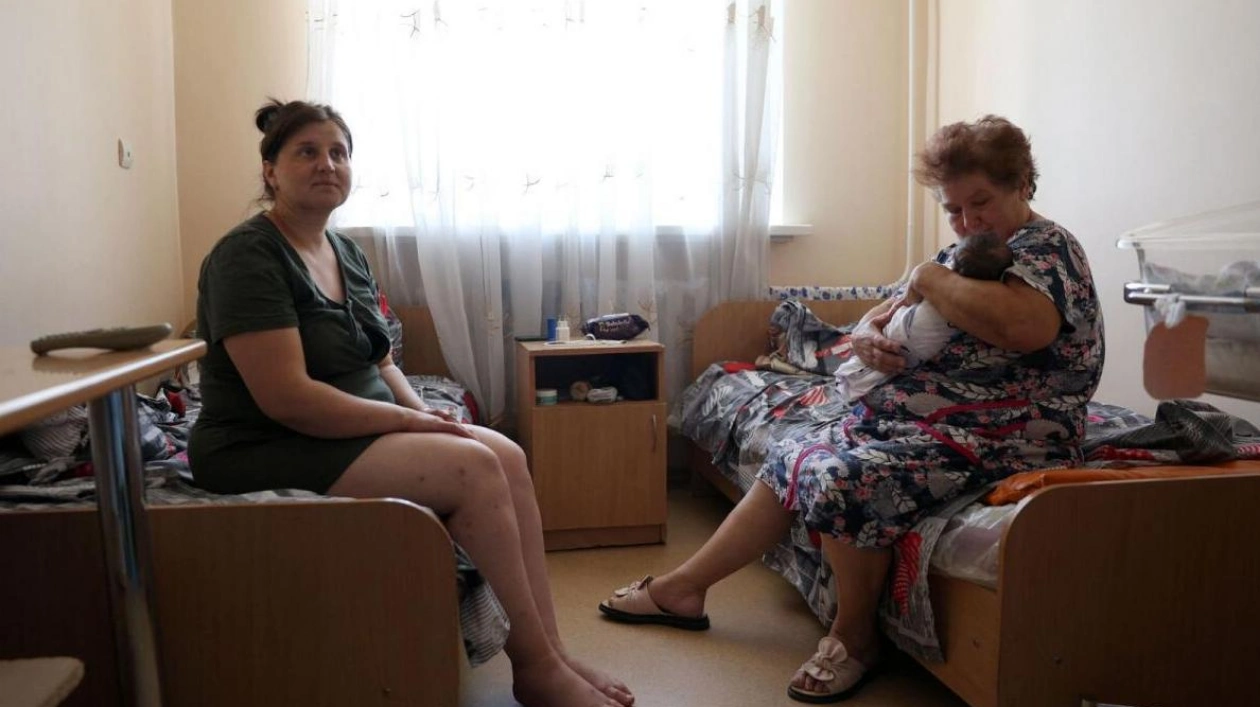Patients and doctors at the last maternity hospital in eastern Ukraine are experiencing sleepless nights. Located in Pokrovsk, a strategic transport hub and a focal point for Russian forces, the hospital faces increasingly intense bombardments. "We endured 10 attacks last night. Can you imagine?" remarked Ivan Tsyganok, the 58-year-old head of the facility, as he briskly walked through the hospital corridors. The tall obstetrician efficiently directed staff while making his rounds, noting the challenging conditions for both staff and patients.
Pokrovsk, once home to about 60,000 residents, is just 20 kilometers from advancing Russian troops. Moscow is also aiming to control a nearby highway connecting Pokrovsk to Kramatorsk, the largest town in the Donetsk region still under Ukrainian control. The maternity unit in Kramatorsk has already been destroyed. Since 2014, the region has been under partial control of Russian separatist forces, leading to multiple attacks on maternity wards, including during the siege of Mariupol and more recently in Selydove.
The World Health Organisation reports at least 1,770 attacks on Ukrainian medical facilities, resulting in the deaths of 136 workers and patients. Tsyganok highlighted the difficulties in transferring patients due to road closures. Women near the frontline must now take lengthy detours to avoid areas frequently targeted by artillery and drones. Despite President Volodymyr Zelensky urging residents to evacuate Donetsk two years ago, and ongoing forced evacuations in some frontline areas, the doctors remain committed to their duties.
Tsyganok acknowledged the risks but emphasized the necessity to continue working as long as patients are present. He pointed out the sandbags protecting windows in the operating room from potential shrapnel. Electricity issues are also prevalent, with Russian strikes significantly reducing Ukraine's power generation capacity, leading to frequent blackouts in frontline zones. Tsyganok recounted a recent emergency caesarean section completed by phone light due to a generator failure during a power outage.
Staff shortages are increasing, with many nurses living on the frontline and some having left due to the constant bombing. Tsyganok noted a doubling in premature births in the Donetsk region since Russia's invasion in February 2022. He stressed the importance of a safe medical environment for expectant mothers, questioning the safety of living in areas like Avdiivka under current conditions.
In one ward, Tetiana Pychuk, visibly exhausted, looked at her two-day-old son Timofey. From Selydove, where a maternity ward attack killed a pregnant woman and her child, Pychuk spent nights in a hospital corridor for safety. She described enduring bombing throughout her pregnancy and the ongoing fear for her family's future. The potential closure of the maternity hospital would be devastating for the region, forcing the relocation of equipment and patients to Dnipro, a journey fraught with danger for women in labor.
Tsyganok plans to evacuate but has not yet set a date. He believes that soldiers fight so that their companions can safely give birth in such facilities.






